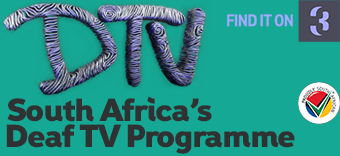Today is United Nations Day, commemorating the entry into force of the Charter of the United Nations.
The United Nations was established on 24 October 1945 to promote international co-operation, and to prevent conflicts on the scale of the World Wars. The United Nations has grown from 51 member states at its founding, to 193 member states currently, and its mission has grown beyond preserving world peace. The United Nations was not the first organisation that sought to regulate conflicts between nations, but it is the longest running, and also represents a far greater number of nations and people than any of the earlier organisations.
In 1948, the General Assembly adopted the Universal Declaration of Human Rights, which serves more as a common standard of achievement for all nations than a legally binding document. Nonetheless, the United Nations continues to focus extensively on
promoting and encouraging respect for human rights and for fundamental freedoms for all without distinction as to race, sex, language, or religion
In December 2006, the landmark Convention on the Rights of Persons with Disabilities was adopted by the General Assembly, with South Africa being one of the first nations to sign the document in March 2007. The Convention has more than 30 articles that cover the specific rights of persons with disabilities, which all member states are expected to adhere to. These include rights such as (the full document can be viewed on the United Nations website)
- As a change of perceptions is essential to improve the situation of persons with disabilities, ratifying countries are to combat stereotypes and prejudices and promote awareness of the capabilities of persons with disabilities (Article 8).
- Countries are to guarantee that persons with disabilities enjoy their inherent right to life on an equal basis with others (Article 10), ensure the equal rights and advancement of women and girls with disabilities (Article 6) and protect children with disabilities (Article 7).
- On the fundamental issue of accessibility (Article 9), the Convention requires countries to identify and eliminate obstacles and barriers and ensure that persons with disabilities can access their environment, transportation, public facilities and services, and information and communications technologies.
- Countries are to promote access to information by providing information intended for the general public in accessible formats and technologies, by facilitating the use of Braille, sign language and other forms of communication and by encouraging the media and Internet providers to make on-line information available in accessible formats (Article 21).
Some people questioned the need for a separate convention for persons with disabilities, and the United Nations addresses these questions in the FAQ on their website, stating, amongst others that
The rights enumerated in the Universal Declaration of Human Rights, in a perfect world, would be enough to protect everyone. But in practice certain groups, such as women, children and refugees have fared far worse than other groups and international conventions are in place to protect and promote the human rights of these groups. Similarly, the 650 million people in the world living with disabilities—about 10 per cent of the world’s population—lack the opportunities of the mainstream population. They encounter a myriad of physical and social obstacles that:
-
Prevent them from receiving an education;
-
Prevent them from getting jobs, even when they are well qualified;
-
Prevent them from accessing information;
-
Prevent them from obtaining proper health care;
-
Prevent them from getting around;
-
Prevent them from “fitting in” and being accepted.
The Convention does not create any new rights or entitlements for persons with disabilities, but instead it expresses existing rights in ways that address the specific needs of persons with disabilities.
Celebrate United Nations Day by
- Enjoying the rights afforded you by its declarations and conventions, and those enshrined in our own Constitution.
- Learning more about the United Nations, and what they do.
- Sharing this with others.
